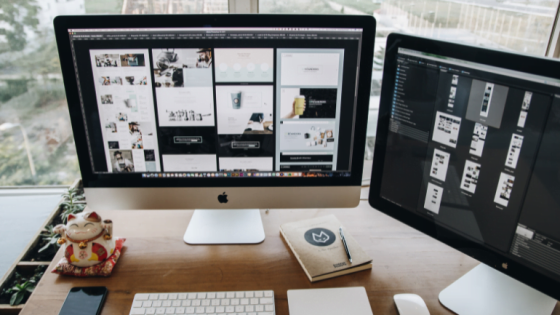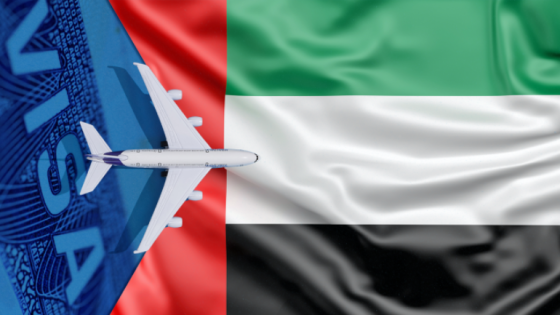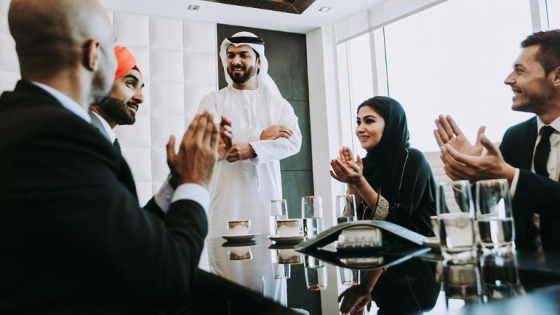Contents
Business protocol in UAE is likely to differ from that of your home country. It is, however, simple to navigate differences, as this helpful guide explains. The most important thing to remember is that in the UAE, business etiquette is all about respect. Furthermore, business attitudes are shifting. For example, corporate social responsibility is becoming increasingly important. Furthermore, the government is taking steps to encourage women in the workplace and discourage corporate crime.
Business Protocol in UAE
It is critical to remember that the UAE is an Islamic state. As a result, the business protocol traditions in the Arab United Emirates are more conservative in cultural protocols than in Europe or the United States. In addition, instead of Saturday and Sunday, weekends are held on Friday and Saturday. Despite this, the business world in the UAE is a synthesis of two cultures. Furthermore, because they understand that the West has a much more relaxed attitude, most Emiratis are forgiving of foreign business associates.
In the Emirates, personal relationships are important to businesses. As a result, local business culture requires you to do practices and pay attention to small talk and socializing, even during work meetings. At the same, loyalty is highly valued.
Read more: UAE cultural development
Business Hours and Working Conditions
The UAE government issued two new resolutions in 2019 that may encourage flexible work. The part-time working resolution is intended to assist employers in filling labor gaps, particularly at odd hours. Similarly, the remote working resolution was developed to assist Emirati nationals in achieving a better work-life balance. Most employees, for example, receive 30 days of annual leave in addition to public holidays. They can also take up to 90 days off for illness. Women are also entitled to 45 days of paid maternity leave. When they return to work, they are also given special consideration.
In general, the UAE workday lasts eight hours, from 9 a.m. to 5 p.m. Furthermore, the workweek is from Sunday to Thursday. During the holy month of Ramadan, however, most people only work six hours per day. Although punctuality is not a priority, Emiratis value it. As a result, it is critical that you arrive for work and meetings on time.
Read more: history of Dubai city
Etiquette & Business Protocol in the UAE

Communication skills are essential for good business etiquette and protocol in Dubai UAE, Abu Dhabi. Communication is more formal in this country due to its more conservative culture. When you first meet someone, you should address them greeting entering as “Mr.” or “Ms.” While men can exchange light shaking hands, when meeting with women, always wait for them to extend their hand. Furthermore, you should always greet the senior citizen first by saying (Salam alaikum) and work your way down the line. That is why business etiquette training courses and protocol training are important.
The Dress Code
In business etiquette in the UAE customs, the majority of locals dress traditionally. That means a dishdasha (long white shift) for men and an abaya for women (a floor-length robe). While expats should not dress like the locals, they should wear formal attire that is modest and non-revealing. Suits and dress shoes should be worn by men. Women, on the other hand, should pay close attention to their business attire. Always keep your shoulders, chest, upper arms, and knees covered. Long skirts and dresses are an excellent choice. You could also put on a light blazer and shirt with loose, flowing pants. In any case, avoid wearing flashy jewelry and strong perfume.
Take a look at: History of Sharjah
The Gift Bag
Giving a token gift when meeting potential clients for the first time is a nice gesture. Similarly, giving a gift when closing a deal is always appropriate. Gifts are also appropriate to commemorate major religious holidays such as Ramadan. If you can get it from another country, that’s even better. Locals appreciate receiving gifts from people of other cultures.
Snacks like high-quality dates or chocolates are a good choice for a first meeting. You can choose higher-quality or more expensive gifts for more long-term relationships. A well-chosen coffee table book can also make an excellent present. At the highest levels, you may even select pens or cuff links from high-end brands.
There are some items you should avoid giving as gifts because they may offend Muslim associates. Don’t give alcohol, pigskin products, personal items, anything containing pork, or anything related to dogs, for example.
Read more: History of Umm Al Quwain
Business Cards Handling
Typically, at the start of a meeting, you will exchange business cards. Always give your card with your right hand, as it is considered impolite to use your left. Every employee in the company should have a business card. Your business card should include your company name, name, designation, phone number, e-mail address, and website address. Furthermore, the card should be written in both Arabic, the UAE’s official language, and English, the local business language.
Business Meetings & Negotiations

Meetings are essential to the UAE business culture. However, these can take many different forms. It is possible that you will be required to attend formal meetings where the most senior people present, discuss, and negotiate. You may also find yourself attending more casual lunches or coffees. In some cases, you may be invited to someone’s home for dinner.
Because personal relationships are important in business, it is essential to form bonds with new business acquaintances. You can expect to spend at least 30 minutes in any meeting making small talk before getting down to business. Being rushed and pushy is considered impolite, so expect the meeting for more while. It is acceptable to answer the phone or respond to messages. Because haggling is an important part of the shopping culture in the UAE, you can expect a lot of negotiating.
Read more: Al Ain History
What is the communication etiquette in the UAE?
Emirati communication is typically indirect. Small talk is common, even expected, and is frequently used as a prelude to business discussions. In the UAE, business is conducted on the basis of trust, and individuals who try to rush through business matters will fall short.
What is the business environment in the UAE?
The UAE offers an advantageous business environment. The UAE has an advantage over other countries due to its excellent infrastructure, professional expertise, and personalized services. According to the World Bank’s Ease of Doing Business Report 2020, the UAE is ranked 16th in the world.
What are the rules and regulations of UAE?
You must be aware of UAE laws in order to avoid trouble.
1. There will be no kissing or touching.
2. No cursing or inappropriate gestures.
3. No photographing others without their permission.
4. Disregard for any religion.
5. There will be no sharing of private space with the opposite sex.
6. No inappropriate clothing.
How is business done in UAE?
Investors seeking to establish a business in one of the UAE’s numerous Free Zones must choose between a Free Zone Company (FZCO) and a Free Zone Establishment (FZE). In terms of capital requirements and the number of shareholders allowed, and company structures.
Business protocol in UAE is required for companies and employees to establish a business. The United Arab Emirates is a land of opportunity, with a well-established economy and a fast-paced and multicultural lifestyle. Every day in the Emirates is an unforgettable experience. What matters is that the UAE is a fantastic place for international business. Take chances, learn UAE’s business etiquette, be flexible, and practice on right behavior and common manners for eating, clothing, and building relationship while working or visiting the UAE.













